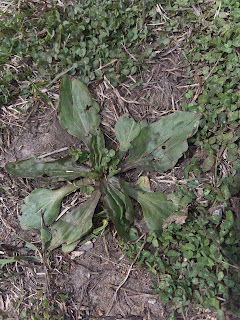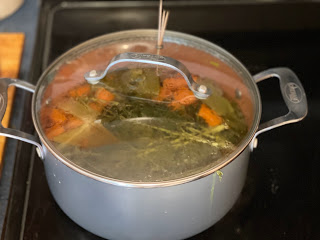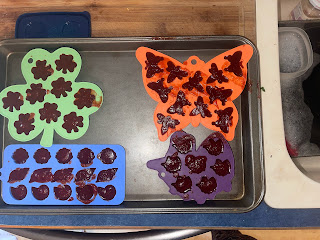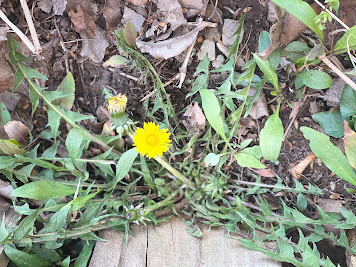I cut my finger while chopping cabbage for coleslaw today. As it is a nice spring day I decided fresh plantain weed would make a nice wound healing bandage.
Plantain weed is a perennial plant produces greenish flowers with large, oval-shaped leaves that can be eaten raw or cooked. Properly known as broadleaf plantain (Plantago major). Moreover the entire broadleaf plantain plant is edible from root to seed. Nutrients include vitamin A, as well as vitamins C and K, zinc, potassium, and silica. Plantain seeds are rich in proteins, carbohydrates and omega 3 fatty acids. The plantain's seed coat contains up to 30% mucilage, giving it a gelatinous quality when wet. You can grind up plantain seeds in their husks to use as thickening in recipes. Broadleaf plantain is not closely related to the fruit also known as plantain.
The leaves are edible as a salad green when young and tender, but they quickly become tough and fibrous as they get older. The older leaves can be cooked in stews. The leaves contain calcium and other minerals, and 100 grams of plantain contain approximately the same amount of beta-carotene as a large carrot. The seeds are so small that they are tedious to gather, but they can be ground into a flour substitute or extender.
The mature plant contains pliable and tough fibres that can be used in survival situations to make small cords, fishing line, sutures, or braiding.
Plantain is commonly used medicinally by herbalists to inhibit bacteria growth, counteract poisoning, relieve pain and inflammation, clear obstructions in the gut and airways, increase the flow of urine, reduce fever, stop bleeding, improve eye drainage, treat or heal wounds.
Plantain contains the phytochemicals allantoin, aucubin, ursolic acid, flavonoids, and asperuloside.Plantain extract has been studied for its potential health effects.
Plantain leaves were used commonly in folk medicine for skin poultices on wounds, sores, or insect stings.The root was used for fever and respiratory infections.
Tea brewed from leaves used to treat coughs and bronchitis. Also used traditionally for diarrhea, dysentery, and bloody urine. Leaves in poultice used for sores, blisters, swellings, and insect stings.
The seeds of any plantain may lower cholesterol when ingested. Once used for malaria and epilepsy.
Rarely, contact with this plant can cause dermatitis. Approved for use in Europe due to bronchodialation effects, and proven as an antimicrobial.




Comments
Post a Comment